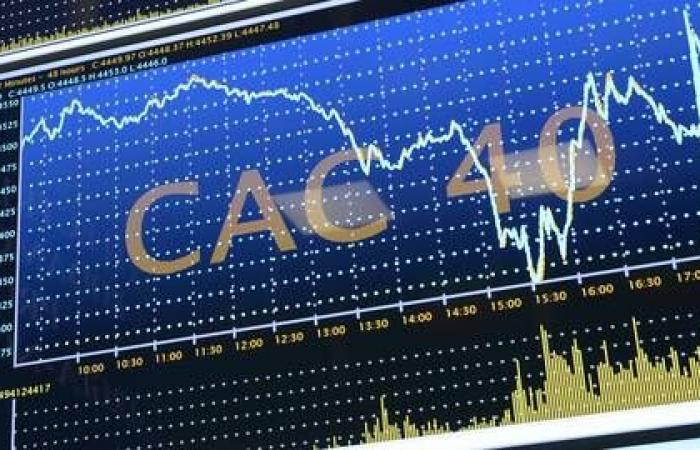(BFM Bourse) – The third quarter publication ball ended this week. The result is mixed performances at best, even bad.
The market feared a bad vintage for this third quarter results season in Europe.
He wasn't really wrong. In a study published Thursday, Deutsche Bank noted that, of the 72% of companies in the Stoxx 600 (a pan-European index) to have returned their copies, the majority (62%) have certainly exceeded expectations in terms of profits. But the German bank qualifies, recalling that the consensus – that is to say the analysts' forecasts – had been significantly revised downwards ahead of this season. Which had set “the low bar”, she explains. And a minority (46%) of these companies exceeded revenue expectations.
“Overall, stocks have declined throughout earnings season, which is rather unusual during third-quarter earnings releases and can likely be explained by the negative sentiment that was fueled by” the releases disappointing results from the Dutch ASML, LVMH and Nestlé “in the first days of this results season”, develops the German bank.
“US election anxiety and mixed macroeconomic data have not helped stock sentiment,” she adds.
Let us recall in passing that the third quarter is obviously a little unusual, because certain groups publish turnover while others provide complete results.
An average variation in the red
What about the CAC 40? The index itself fell by 1.3% between October 15, the date of the first publication of the CAC 40 (LVMH) and November 7, the last day of the season.
As the CAC 40 can be influenced by factors external to the results, we looked at the market reaction for each company in the index during the session following the publication. The same day if the company publishes in the morning before the market opens or the next day, for those delivering their activity or their results in the evening, after the close (like LVMH or Michelin).
This measurement of market reception of publications has the merit of simplicity, with obviously some reading limits. An example attests to this: Stellantis shares gained 2.99% after reporting revenues that were in free fall in the third quarter. The explanation is simple: the manufacturer had previously issued a heavy profit warning at the end of September, and analysts' expectations had been revised. The action then progressed, the same day of publication, because the copy turned out to be “bad but not worse than expected”, underlined UBS, with progress announced on the reduction of stocks in the United States, large thorn in the side of Stellantis.
At the level of the CAC 40 as a whole, the results are mixed at best or even frankly negative. As shown in the infographic below, 18 companies saw a surge after their third-quarter release
22 a drop. And the average variation stands at -0.96% for the entire CAC 40.
Final point: the heavy sanctions were more important than the rewards. Nine groups showed a decline of more than 3% while only four grew by more than 3%.
Société Générale and Renault on the honor roll
In terms of good surprises, Société Générale (+11.33%) recorded by far the best performance in the CAC 40 thanks to accounts that exceeded expectations at almost every level, including a positive shift in retail banking. In France.
Arcelormittal climbed 6.5%, its gross operating profit having positively surprised the market, while some of its rivals had, on the contrary, disappointed, noted Morgan Stanley.
Renault (+4.7%), which is perhaps the only European manufacturer apart from Ferrari not to disappoint this year, managed to increase its revenues in its automobile division (excluding currency effects), while analysts were counting on a decline. For Oddo BHF, Renault represents “a clearing” in a very cloudy (even rainy) European automotive landscape.
Bouygues (+3.09%) for its part delivered profitability above expectations, thanks in particular to the recovery in margins at Equans, its multi-technical services subsidiary purchased in 2022 (at a high price) from Engie.
As for the “bad students”, Edenred fell 14.65% following the announcement of its third quarter revenues. Accustomed to exceeding expectations, the specialist in payment solutions in the world of work has, this time, published growth below the consensus. The company also warned of regulatory risk in Italy.
Eurofins plunged 11.5% after also disappointing its growth and revising downwards its revenue target for 2024. Michelin also suffered (-8.22%) its activity having been weighed down by a deterioration in volumes. The tire manufacturer has also lowered its forecast for its main profitability indicator.
Legrand (-7.3%) and Capgemini (-6.4%) also had to reduce one or more of their objectives for 2024.
Let us specify that Pernod Ricard delivered its activity for the first quarter of its staggered 2024-2025 financial year, the company closing its accounts at the end of June and not at the end of December like the other residents of the CAC 40.Julien Marion – ©2024 BFM Bourse
France






